Why anti-PD-1/PD-L1 therapy doesn’t work?
Why anti-PD-1/PD-L1 therapy doesn’t work?
| PD-1 and its ligand PD-L1 are immune checkpoint inhibitors that keep T cells from attacking other cells in the body. Many cancer cells overexpress PD-L1 to escape the immunological attack. Anti-PD-1/PD-L1 agents have been developed for cancer treatment. However, many cancer patients fail to respond to anti-PD-1/PD-L1 therapy for unknown reason. Recently, an article published in Nature identified a novel mechanism controlling PD-L1 protein stability which in turn influence therapeutic efficiency of anti-PD-1/PD-L1 agents. Dr. Zhang and colleagues found that PD-L1 protein is destabilized by the Cyclin D/CDK4-SPOP signaling pathway. SPOP, an adaptor of Cullin 3 E3 ligase, interacts with PD-L1 and promotes its degradation. Cyclin D/CDK4-mediated phosphorylation enhances SPOP stability and the subsequent PD-L1 degradation. Inhibition of CDK4/6 elevates PD-L1 protein level. Accumulated clinical studies revealed that the efficiency of anti-PD1/PD-L1 agents correlates with PD-L1 expression level in cancer cells. The authors further examined if the elevated PD-L1 level by treating CDK4/6 inhibitor increases the anti-cancer efficiency of anti-PD1/PD-L1 therapy. They found that combining CDK4/6 inhibitor with anti-PD-1 therapy resulted in a significant improvement of survival compared to single-agent treated group. Their study provides a rationale for the combining CDK4/6 inhibitor treatment with anti-PD-1/PD-L1 immunotherapy to enhance tumor regression arigo offers excellent antibodies for studying PD-1/PD-L1 signaling and immune checkpoint. |
|
|
| PD-L1 antibody (ARG55930) |
PD-L2 antibody [MIH14] (ARG23636) |
PD-1 antibody (ARG56131) |
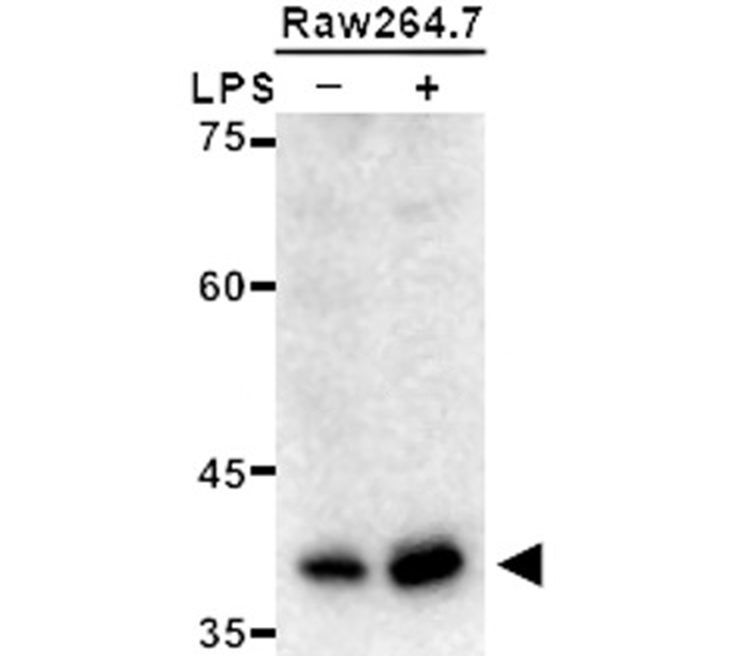 |
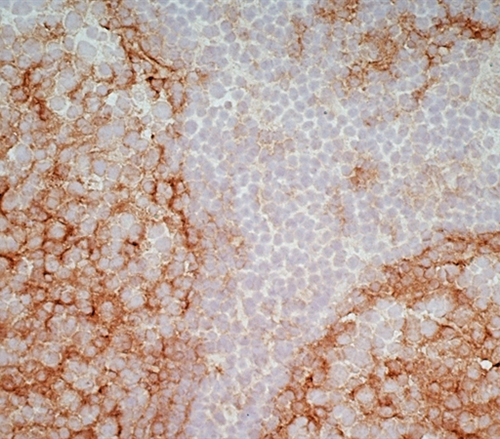 |
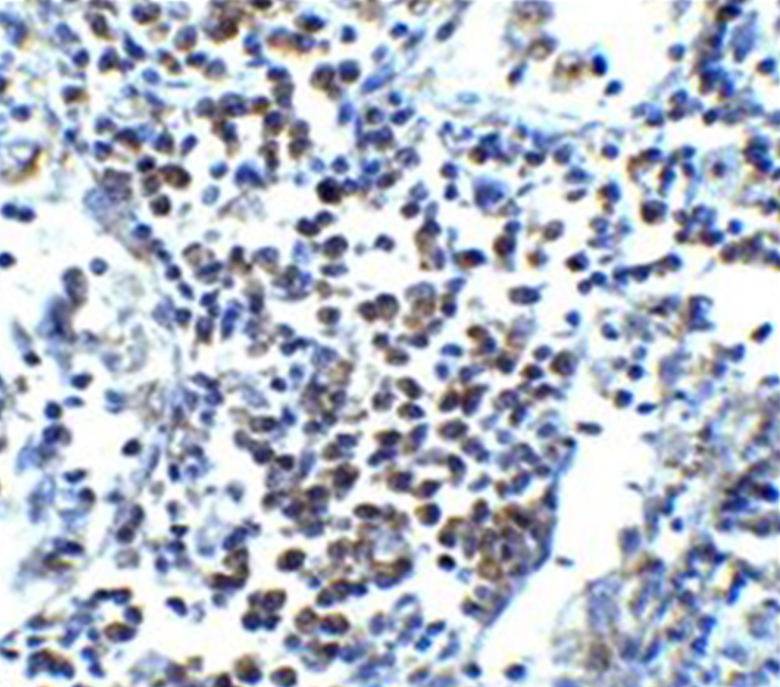 |
B7-H3 antibody [SP206] (ARG52539) |
B7-H4 antibody [MIH43] (ARG23277) |
VISTA antibody [SP344] (ARG56448) |
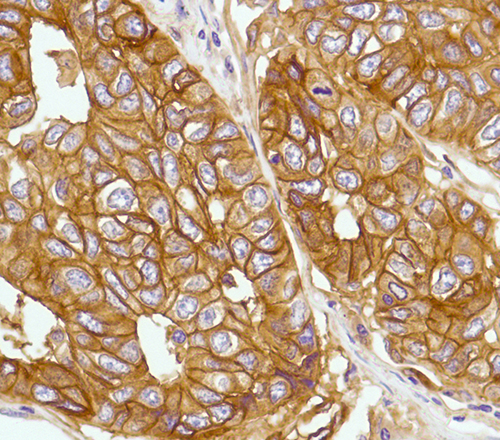 |
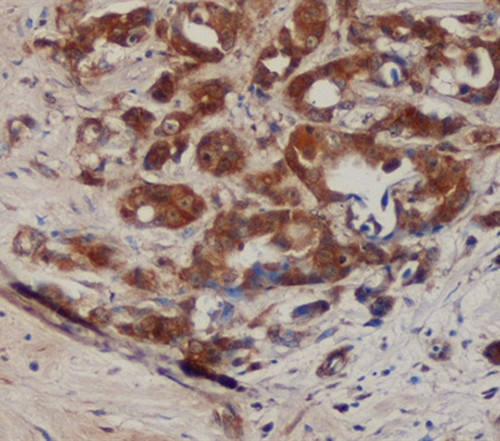 |
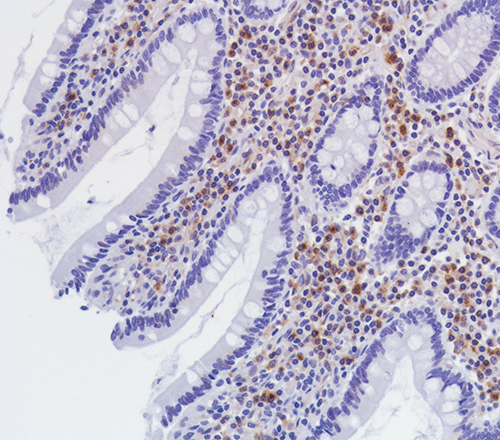 |
CTLA4 antibody [4C8] (ARG57120) |
HVEM antibody [CW2] (ARG22396) |
CDK4 antibody (ARG57290) |
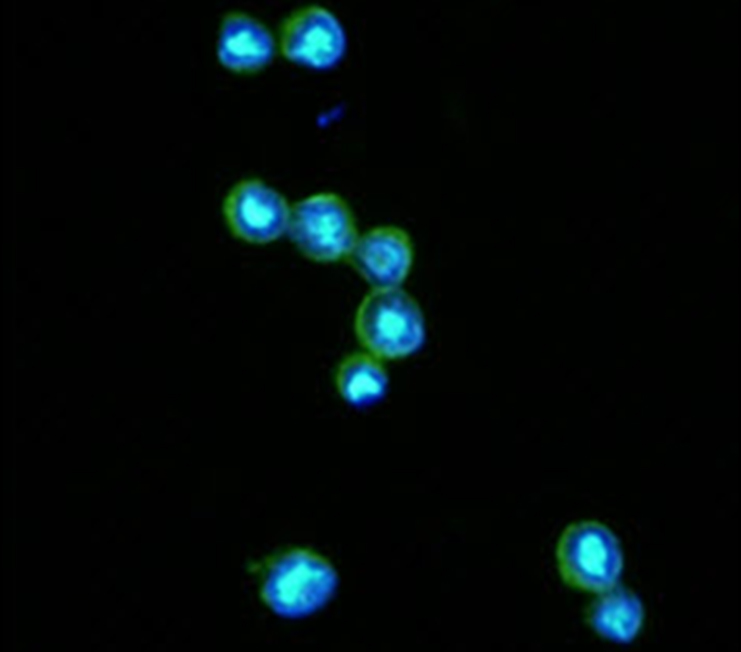 |
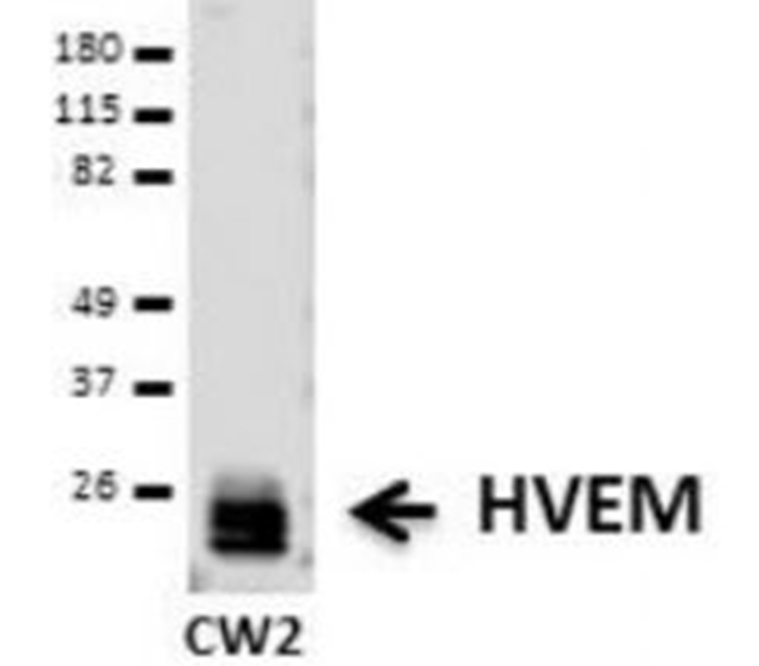 |
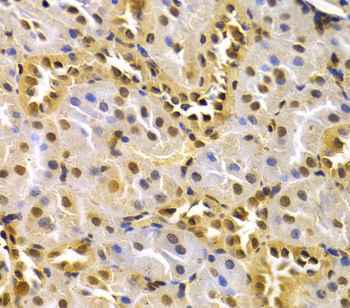 |
| Reference: Zhang et al., (2017) Nature. 2017 Nov 16. doi: 10.1038/nature25015. |
